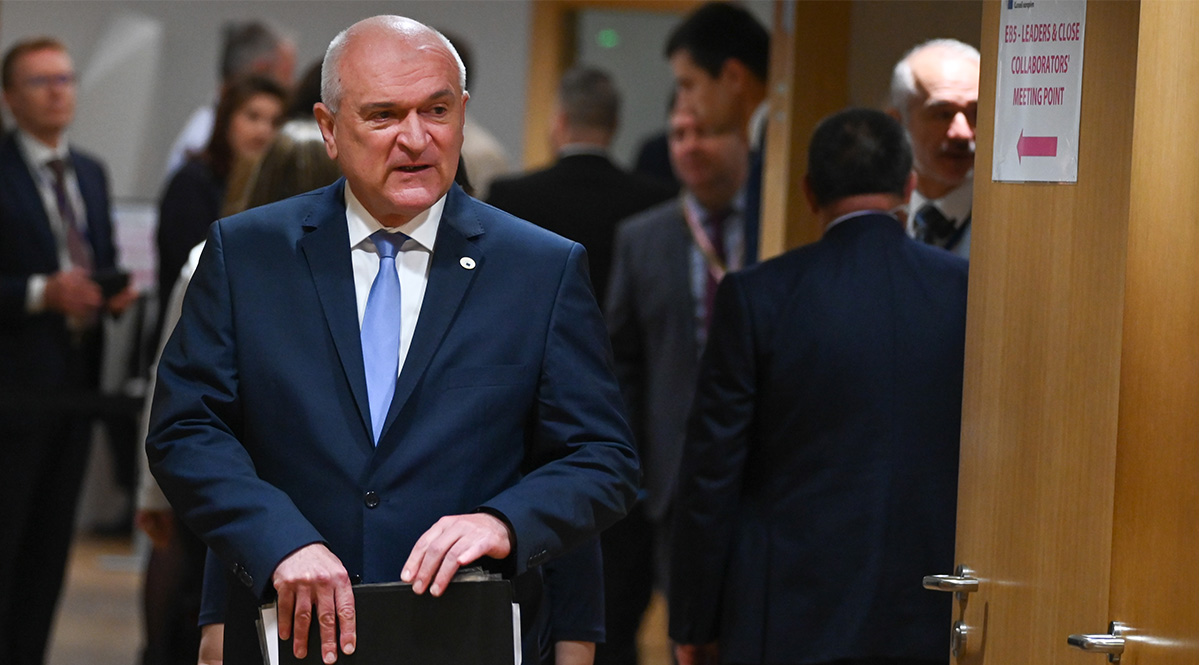Bulgaria's Constitutional Court Annuls the Mandates of Some MPs
On 13 March, the Constitutional Court of Bulgaria (KSB) invalidated the mandates of 16 MPs elected in the last parliamentary elections on 27 October 2024. As a result of a recount because of dubious votes, the nationalist party Greatness crossed the 4% electoral threshold. This reduced the majority of the current grand coalition in the National Assembly to a minimum, putting Bulgaria at risk of another early election.
.png) Stoyan Nenov / Reuters / Forum
Stoyan Nenov / Reuters / Forum
Why did KSB annul the election of 16 MPs?
After the elections, five parties, including Greatness, which was lacking 21 votes to cross the threshold, appealed the results to the KSB, citing various reasons. The court joined the complaints and ordered an audit in 2,204 out of 12,879 electoral commissions in November. In 1,777 of them, experts found discrepancies between the ballots and protocols. They found that the most votes incorrectly attributed were for the Movement for Rights and Freedoms–New Beginning (1,110; DPS–NN), Citizens for European Development of Bulgaria (452; GERB) and Revival (108), while Greatness had 59 votes not counted. The KSB decided to zero-out the results in seven commissions where ballots had gone missing, although according to the protocols 780 votes had been cast in them. At the end of February, the KSB ordered the Central Election Commission (CIK) to recalculate the distribution of seats on the basis of the corrected protocols.
How has the balance of power in the National Assembly and the governing majority changed?
Following the CIK’s recount, 16 seats were allocated to new MPs in the 240-seat National Assembly. Six of these involved swapping within the lists of the same parties. An additional 10 went to Greatness—a party that originates from the local government of the small municipality of Vetrino—in the exchange of annulled mandates of other parties. The result is a reduction in the parliamentary majority from 126 MPs to the minimum of 121. The leading party in the coalition, GERB lost three seats to 66 now, while the Bulgarian Socialist Party-United Left (BPS-OL) dropped to 19 and There is Such a People (ITN) has 17, each losing one seat. The reduction did not affect the Alliance for Rights and Freedoms (19; APS). It is not formally part of the ruling coalition but has a separate cooperation agreement with it, under which it reserves the right to nominate deputy ministers and governors. Among the opposition parties, Revival lost two seats (now 33) and We Continue the Change–Democratic Bulgaria (36; PP–DB), DPS–NN (29), and the party Morality, Unity, Honour (11; “Sword”) each lost one seat.
What do the parliamentary changes mean for Bulgaria’s foreign policy?
The entry of Greatness into the National Assembly strengthens the pro-Russian factions—the Eurosceptic and nationalist Revival and Sword and the post-communist BSP–OL. They almost balance the strength of the parties with an unequivocally pro-Western orientation—GERB, PP–DB and APS—as ITN and DPS–NN have moved from Euro-Atlantic to ambiguous positions. The change in the balance of power may make it difficult for Rosen Zhelyazkov’s government to maintain military support for Ukraine and to pass the latest amendments adjusting Bulgaria to adopt the euro from 1 January 2026. It will be dependent on the support of PP–DB, which is in conflict with GERB, but also APS and DPS–NN; they emerged from the break-up of DPS in August 2024 due to a conflict between its leaders, the oligarchs Ahmed Dogan and Delan Peevski. Competition for the nationalist electorate may prompt GERB and BSP–OL to further escalate Bulgaria’s disputes with North Macedonia, possibly resulting in blocking the progress of its integration into the European Union.
How does the KSB decision affect the stability of democracy in Bulgaria?
The reshuffle of the National Assembly almost five months after the elections reinforces Bulgarians’ scepticism of state institutions, following public disputes between the KSB, CIK and the prosecutor’s office, and in democratic procedures. For years, the PP–DB accused DPS, GERB, and BPS of buying votes in controlled local government areas. The weakening of the already incoherent ruling majority will likely lead to its disintegration and the collapse of the Zhelyazkov government. This could lead once again to early parliamentary elections, the seventh since April 2021, which if they take place would be unlikely to break the current political clinch, making it difficult to form a majority in the National Assembly. An effect of the electorate’s disillusionment with moderate parties could cause a further increase in support for nationalist and anti-system groups—Revival alone almost tripled the number of mandates since its entry into the National Assembly in November 2021 to October 2024, across four consecutive early elections. It also could further depress voter participation: since 1989, turnout in Bulgaria in parliamentary elections ranged from 49% to 91% until the recent six rounds of early elections, when it did not exceed 42%.



.jpg)
